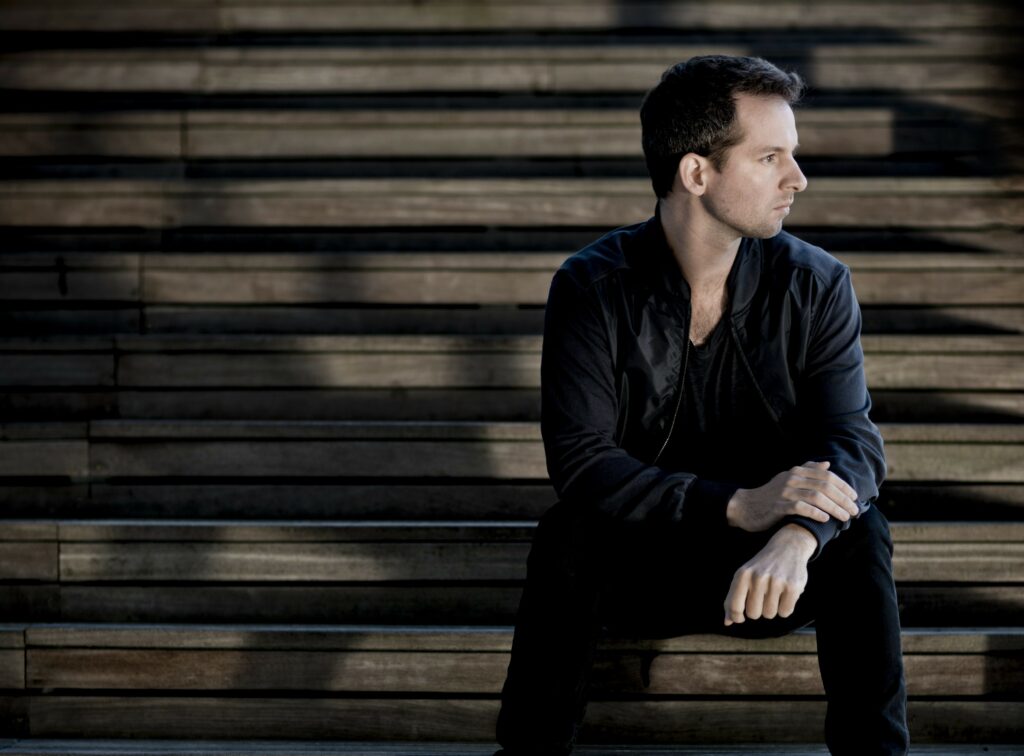Festival Ravel 2025 – Bertrand Chamayou’s editorial
2025 marks the 150th anniversary of Maurice Ravel, born in 1875 in Ciboure in that distinctive Dutch-style house overlooking Saint-Jean-de-Luz, which once hosted Cardinal Mazarin on the occasion of Louis XIV’s marriage.
The ocean was his cradle, with La Rhune and the Trois Couronnes watching over it, and Ravel always expressed pride in being Basque and in mastering the Basque language. Thus, he returned each year to Saint-Jean-de-Luz, where he spent long months composing and immersing himself in that unique culture and landscape.
Each year, the festival’s programming draws from the vast wealth of this towering figure’s musical universe, weaving links—tighter or looser—with his imagination, mindset, humanism, and influences.
This year of celebration is an opportunity to explore Ravel’s œuvre in depth—if not exhaustively, at least in an encyclopedic manner.
Thus, the core of his symphonic music, his piano music, and his chamber music will be presented, along with a large portion of his vocal music, offering listeners a rare chance to embark on a journey into Ravel’s universe.
An entire evening is dedicated to his piano music on September 2, another to his works of Spanish inspiration on September 4, and a major day on September 6 centered on folk songs will likewise be an occasion to discover—in four stages—a lesser-known but no less brilliant facet of his genius: that of arranger of traditional melodies and songs from diverse cultural backgrounds.
The Concerto pour la main gauche, an emblematic work if ever there was one, will serve as a guiding thread running throughout the festival—from the opening with the Paris Opera Orchestra, where it will be performed by Kirill Gerstein, to the closing, where I myself will be on stage for a performance-installation by the visual artist Anri Sala, Ravel Ravel Revisited, 2022.
The opera La Main gauche by the Basque composer Ramon Lazkano, a world premiere at the 2025 Festival, is itself based on Jean Echenoz’s Ravel, which recounts in a fictionalized manner the troubling last years of the composer’s life.
2025 also marks other anniversaries, notably those of important figures in Ravel’s circle. Thus, it has been one hundred years since the death of the iconoclast Erik Satie, one of his illustrious predecessors.
August 30 will celebrate this free spirit, with various performances, including the famous Vexations, a piece repeated 840 times throughout the day by a succession of pianists whose lineup remains secret, giving the public the chance to enter the Fort de Socoa, while other concerts and an unusual lunch take place simultaneously in different locations—from the Egiategia Cellars to the church in Ciboure where Barbara Hannigan will sing Socrate.
It is also the centenary of Pierre Boulez, the famous composer and conductor who championed Ravel’s work throughout his life. Some of his landmark works will punctuate the programming, notably performed by artists who were among his preferred interpreters, such as Pierre-Laurent Aimard and Jean-Guihen Queyras.
A nod to composer Luciano Berio (born in 1925) will also be made during the day centered on folk songs, featuring his Folk Songs, with Sardinian, Sicilian, Azerbaijani—and even Auvergnat—accents!
Finally, you will hear throughout the Festival young soloists from the Académie Ravel, who will perform alongside their elders and mentors to complete this programming by infusing it with the freshness and vitality of their remarkable talent.
We look forward to welcoming you in great numbers for this grand Ravelian journey, which already promises to be unforgettable.
Bertrand Chamayou
President and Artistic Director of Festival Ravel

Bertrand Chamayou © Marco Borggreve

